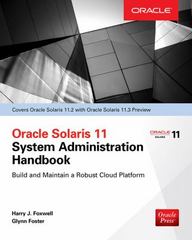Question
C program Goal: Multithreaded sieve of eratosthenes I need help modifying this code to make it work. It keeps seg faulting #include #include #include #include
C program
Goal: Multithreaded sieve of eratosthenes
I need help modifying this code to make it work. It keeps seg faulting
#include
typedef struct BitBlock { uint32_t bits; } BitBlock_t;
static uint32_t val = 10240; static BitBlock_t b[4]; static int num_threads = 1; static unsigned short isVerbose; static pthread_mutex_t* mutexes; static pthread_key_t key;
void setbit(BitBlock_t* a, uint32_t k) { a[k / 32].bits |= 1 << (k % 32); }
void clearbit(BitBlock_t* a, uint32_t k) { a[k / 32].bits &= ~(1 << (k % 32)); }
int testbit(BitBlock_t* a, uint32_t k) { return (a[k / 32].bits & (1 << (k % 32))) != 0; }
void* sieveoferatosthenes(void* vid) { long tid = (long)vid; uint32_t* own_b = pthread_getspecific(key); if (own_b == NULL) { own_b = calloc((val + 31) / 32, sizeof(uint32_t)); pthread_setspecific(key, own_b); }
for (uint32_t j = 2; j <= val; j++) { if (!testbit((BitBlock_t *) own_b, j)) { for (uint32_t i = j * j; i <= val; i += j) { setbit((BitBlock_t *) own_b, i); } } } pthread_exit(EXIT_SUCCESS); }
int getnext() { static int next = 0; pthread_mutex_lock(&mutexes[0]); int cur = next++; pthread_mutex_unlock(&mutexes[0]); return cur; }
int main(int argc, char* argv[]) { int opt = -1; pthread_t* threads = NULL; long tid = 0; for (int i = 0; i < 4; i++) {
b[i].bits = 0;
} pthread_mutex_init(&mutexes[0], NULL);
while ((opt = getopt(argc, argv, "t:u:hv")) != -1) {
switch (opt) {
case 't':
num_threads = atoi(optarg);
break;
case 'u':
val = atoi(optarg);
break;
case 'h':
printf("%s: -t # -u # -h -v ", argv[0]);
printf("\t-t # for number of threads ");
printf("\t-u # for the upper bound of largest number "); exit(0); break; case 'v': isVerbose = 1; break; default: /* '?' */ exit(EXIT_FAILURE); break; }
}
threads = malloc(num_threads * sizeof(pthread_t)); if(isVerbose) { fprintf(stderr, "number of threads: %d", num_threads); fprintf(stderr, "upper bound: %d", val); }
for (tid = 0; tid < num_threads; tid++) { pthread_create(&threads[tid], NULL, sieveoferatosthenes, (void *) tid); }
for (tid = 0; tid < num_threads; tid++) { pthread_join(threads[tid], NULL); }
for (uint32_t p = 2; p <= val; p++) { if (testbit(b, p) != 1) printf("%u ", p); }
free(threads); pthread_mutex_destroy(&mutexes[0]);
return EXIT_SUCCESS; }
Step by Step Solution
There are 3 Steps involved in it
Step: 1

Get Instant Access to Expert-Tailored Solutions
See step-by-step solutions with expert insights and AI powered tools for academic success
Step: 2

Step: 3

Ace Your Homework with AI
Get the answers you need in no time with our AI-driven, step-by-step assistance
Get Started


